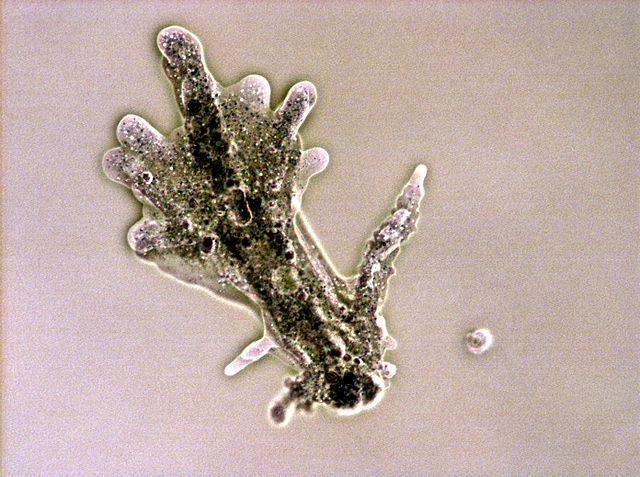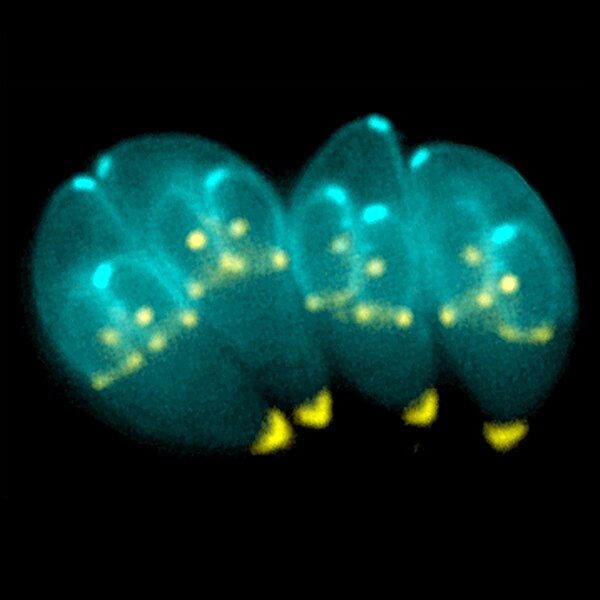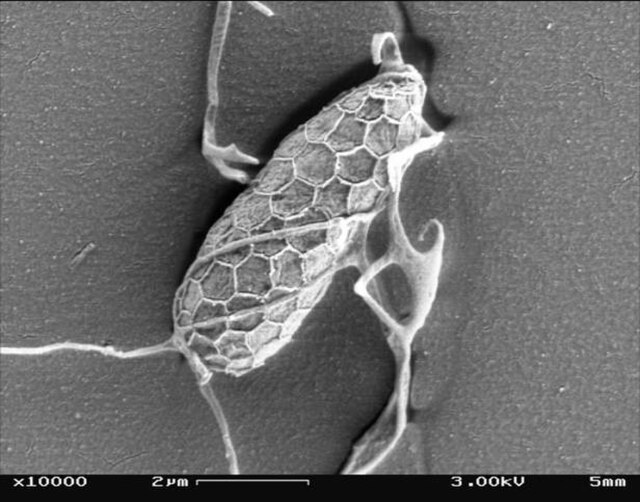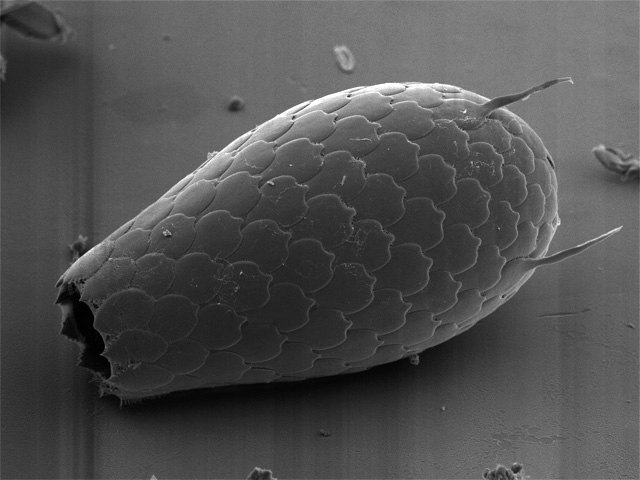Placozoa is a phylum of marine and free-living (non-parasitic) animals. They are simple blob-like animals without any body part or organ, and are merely aggregates of cells. Moving in water by ciliary motion, eating food by engulfment, reproducing by fission or budding, placozoans are described as "the simplest animals on Earth." Structural and molecular analyses have supported them as among the most basal animals, thus, constituting a primitive metazoan phylum.
Crawling motility and food uptake by Trichoplax adhaerens
In biology, a phylum is a level of classification or taxonomic rank below kingdom and above class. Traditionally, in botany the term division has been used instead of phylum, although the International Code of Nomenclature for algae, fungi, and plants accepts the terms as equivalent. Depending on definitions, the animal kingdom Animalia contains about 31 phyla, the plant kingdom Plantae contains about 14 phyla, and the fungus kingdom Fungi contains about 8 phyla. Current research in phylogenetics is uncovering the relationships among phyla within larger clades like Ecdysozoa and Embryophyta.
Image: Amoeba proteus
Image: Toxoplasma gondii
Image: Aplanonet 3
Image: Euglypha sp





